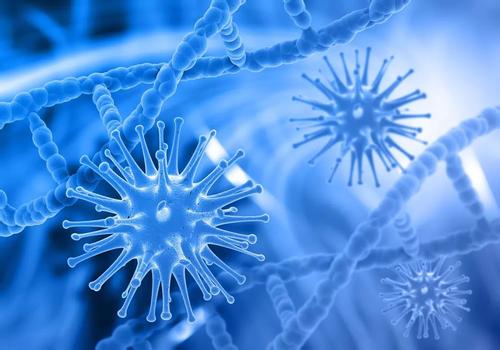(单词翻译:单击)
Anyway, getting sick is a sensible response to infection. Sick people retire to their beds and thus are less of a threat to the wider community.
生病正是对感染的一种能感觉到的反应。病人躺在病床上,因此减少了对更多人的威胁。
Because there are so many things out there with the potential to hurt you, your body holds lots of different varieties of defensive white cells—some ten million types in all, each designed to identify and destroy a particular sort of invader. It would be impossibly inefficient to maintain ten million separate standing armies, so each variety of white cell keeps only a few scouts on active duty. When an infectious agent—what's known as an antigen—invades, relevant scouts identify the attacker and put out a call for reinforcements of the right type. While your body is manufacturing these forces, you are likely to feel wretched. The onset of recovery begins when the troops finally swing into action.
由于外界有许多东西可能会伤害你,因此你的身体拥有大量各种各样的白细胞——总共大约有1000万种之多,每一种的职责分别识别和消灭某种特定的入侵者。要同时维持1000万支不同的常备军,那是不可能的,也是无效率的,因此每种白细胞只留下几名哨兵在服现役。一旦哪个传染介体——即所谓的抗原——前来侵犯,有关的哨兵认出了入侵者,便向自己的援军发出请求。当你的身体制造那种部队的时候,你就可能会觉得很不舒服。而当那支部队终于投入战斗的时候,康复就开始了。
White cells are merciless and will hunt down and kill every last pathogen they can find. To avoid extinction, attackers have evolved two elemental strategies. Either they strike quickly and move on to a new host, as with common infectious illnesses like flu, or they disguise themselves so that the white cells fail to spot them, as with HIV, the virus responsible for AIDS, which can sit harmlessly and unnoticed in the nuclei of cells for years before springing into action.
白细胞是毫不留情的,会追击每个被发现的病原菌,直到把它们最后消灭。为了避免覆灭的命运,进攻者已经具有两种基本的策略。它们要么快速进攻,然后转移到一个新的寄主,就像感冒这样的常见的传染病发地样;要么乔装打扮,使白细胞无法识别自己,就像导致艾滋病的人体免疫缺陷病毒那样。那种病毒可以在细胞核里无害地停留几年而不被发觉,然后突然之间投入行动。


